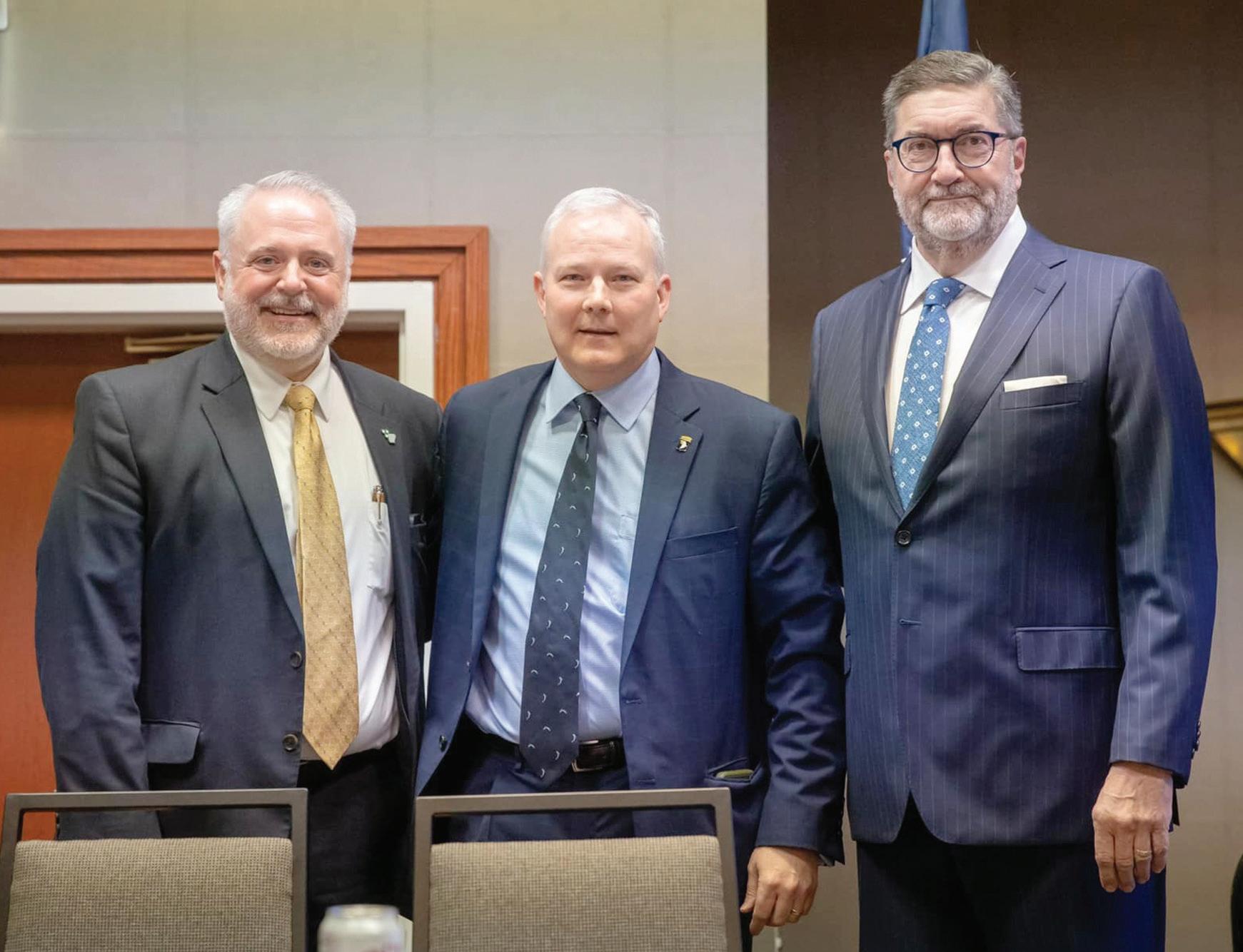
3 minute read
AAC ARORP UPDATE
Opioids
•
Support for Drug Takeback
• 1 training program created for Arkansas’ mayors, county judges, and city and county officials to better protect their communities by utilizing community coalitions to abate the opioid epidemic.
Applying for funding
Applicants must fill out an online application at www. arorp.org/funding-opportunities/. There is no need to hire a grant writer; the application is designed to be userfriendly. The settlement funds are intended for the creation or expansion of opioid prevention, treatment, and recovery projects. The money is not meant to replace or supplant existing funding.
There are four categories of proposals. The general proposal allows flexibility for an organization to submit any project related to opioid prevention, treatment, and/or recovery. We want community leaders to assess their community’s needs, then submit a proposal to address existing gaps in services. There are three other proposal categories: Naloxone Community Hero, Coalition Partnership Empowerment, and Overdose Response Team.
Apply to be a naloxone community hero (HERO) to bring naloxone and training on its use to your community’s residents who need it most: people at risk of opioid overdose and their close friends and family members. (Please note that naloxone from ARORP cannot be distributed or sold to first responders or harm reduction groups.) In 2022, ARORP created the Arkansas Naloxone Bank. Naloxone Community Heroes are organizations that apply for a credit to use at the Naloxone Bank for distribution within their community. These organizations host naloxone training and equip every trainee with a free dose of naloxone.
The purple color of a county on this map, which is on the ARORP website, indicates that opioid settlement dollars have been disbursed in that county to a project focusing on opioid prevention, treatment, or recovery.
City and county law enforcement agencies and local drug task forces can submit an Overdose Response Team (ORT) proposal. An ORT partners a law enforcement criminal investigator with a peer recovery specialist (PRS) to respond to fatal and non-fatal overdoses within their jurisdiction.
Finally, community coalitions can apply for extra training through CADCA with a coalition partnership empowerment (COPE) proposal. The COPE proposal provides coalitions with the preparation necessary to apply for a Drug Free Communities (DFC) grant.
Help us turn the state purple! Encourage organizations in your area to create new projects in opioid prevention, treatment, and recovery to abate the opioid epidemic.
Attorney General announces intent to work with counties, cities on opioid abatement
During the Winter 2023 meeting of the County Judges Association of Arkansas (CJAA), the state, cities and counties collectively announced their intent to work together to abate the opioid epidemic in Arkansas.

Attorney General Tim Griffin spoke before the CJAA, praising the work cities, counties, and the Arkansas Opioid Recovery Partnership (ARORP) have achieved thus far. He said he “greatly respects” Association of Arkansas Counties (AAC) Executive Director Chris Villines, Arkansas Municipal League (AML) Executive Director Mark Hayes and ARORP Director Kirk Lane. He said he plans to work “cooperatively, collaboratively” with the associations and the partnership.
“Some people see the cities and the counties somehow in competition with the state,” Griffin said. “The cities and counties are the state. The cities and counties make up the state. We’re not in competition. We’re on the same team. It’s the same jersey.”
Griffin said he does not plan to duplicate the efforts the AAC, AML and ARORP have already made. Specifically, he said he does not plan to create another advisory board.
“I’m not going to create another 12-member advisory board,” he continued. “Ya’ll have great experts, and the great thing about information is we can share it. So, I can listen to your experts,” he said, noting that the partnership makes things simpler for everyone involved.
AAC Executive Director Chris Villines applauded Attorney General Griffin’s announcement.
“I am proud of the work the cities and counties have achieved thus far. The cooperation of Attorney General Griffin will only expand our outreach in communities across the state.”
Municipal League Director Mark Hayes recounted how five years ago the AAC and AML “joined in a partnership unlike anything else in the country. I don’t like the word epic, but it was truly an epic effort to eradicate a scourge in this state.”
Hayes said his perspective on the opioid litigation pursued by the cities and counties “took on an entirely new light” in April 2020 when his son died from an opioid addition and fentanyl overdose.
“I cannot tell you the joy and pride I have standing up here knowing that the state of Arkansas is now fully engaged with us because we can’t fix this problem in Arkansas unless the three entities join together hip to hip.”










